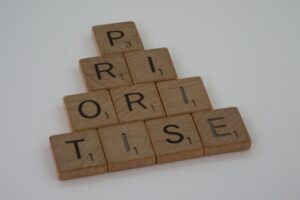
Meetings from long time represent either an invaluable resource or the biggest loss of time, depending on how they are handled. And since time has a cost, is worth to have them running efficiently maximising the result.
Having a meeting is not always and only “working together”, indeed in all honesty I would not define this type of meeting as real meetings. Most meetings should be discussions that lead to decisions or at least enable them to be taken.
A study has shown that on average a manager spends more than 40% of the time engaged in meetings, whether physical or virtual, with the last ones which have become one of the biggest ways to reconvene with people both as a result of pandemic and of globalisation.
The questions to be asked in order to make a meeting effective are not far from organising “a of a remote”normal” meeting, since the ultimate goal is no other than to make these moments the substitute for endless emails threads that normally do not lead to a quick and effective decision.
So what are the points to keep under control?
Meeting for the sake of meeting is a waste of time
A meeting should be a decision-making moment with a purpose (one or more depends on your ability). Otherwise it should be given the correct name of “brainstoming” which has completely different rules and management. Avoid including anything other than those topics that you consider ready for an effective and final discussion.
Meeting need to produce something
Define the expected result. Whether it is a desirable decision or a series of actions, you must have clear ideas of what result you expect and, if it does not arrive, critically rethink what did not work. Based on this you will be also able to include those, and only those, contributors that can bring something on the table to produce the result: a decision-making meeting cannot be overabundant or scarce; in order for it to be effective, it must have exactly the number and type of people needed.
Preparation is key
Come prepared because improvisation doesn’t work well. Ask yourself what preparation is necessary to be more effective in the meeting, because being the outcome of a meeting or a decision or a plan, if you have not already reflected on the implications and studied the topic in depth, you risk not having the elements to make the correct choice. Be sure also to focus on planning on how to keep attention high and how to keep time in an reasonable way. The longer a meeting lasts, the more the participants will tend to get distracted and therefore the less effective the meeting will be. And by the way the cost of the meeting will be higher.
Critically rethink on how things went
Not all goes well every time. When finished, analyse what worked well and what did not. Does this and other meetings need to be rearranged in a new specific order? What follow-up would be most effective?



